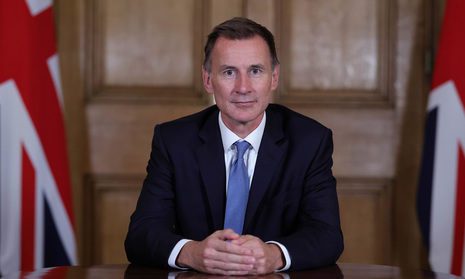Chancellor Jeremy Hunt has introduced an additional 2p minimize to Nationwide Insurance coverage falling from 10% to eight% from 6 April, as a part of his Spring Funds for “long-term development”.
The discount in Nationwide Insurance coverage is anticipated to avoid wasting the common employee £450 a 12 months, or £350 for many who are self-employed.
This minimize to Nationwide Insurance coverage follows the 2p minimize introduced by Hunt within the Autumn Funds final 12 months.
Nonetheless, the chancellor resisted calls from retail and hospitality bosses to chop enterprise charges and abolish the present degree of vacationer tax. Stories Hunt might additionally transfer to scale back nationwide revenue tax have been additionally unfounded. The extent of company tax was additionally left unchanged.
Alcohol obligation was set to rise by 3% however the chancellor introduced that he has prolonged the alcohol obligation freeze till February 2025.
He claimed that this may profit round 38,000 pubs and sit on prime of the £13,000 saving a typical pub will get from the 75% enterprise charges low cost. Hunt mentioned this extension demonstrates the federal government’s assist of “the good British pub”.
Elsewhere, Hunt prolonged a 5p minimize in gasoline obligation for one more 12 months, which has been frozen at 57.95p since 2011, following a short lived drop of 5p in 2022.
The chancellor mentioned that these mixed freezes will assist cut back inflation by 0.2% over the interval and assist the federal government attain the Financial institution of England’s 2% goal.
Hunt additionally acknowledged that enterprise funding this 12 months will probably be 10.6% of Britain’s GDP and can proceed to rise.
To assist enhance continued funding, Hunt acknowledged that the federal government will shortly publish draft laws for full expensing to use to leased property, a measure to be introduced in “as quickly as it’s inexpensive”.
Full expensing was launched as a short lived measure on the final funds and can now grow to be a everlasting tax minimize for companies.
Furthermore, Hunt introduced that he would abolish the present tax system for non-domiciles and substitute it with a “fairer and aggressive” residency system.
It would see non-doms pay the identical degree of tax as UK residents after 4 years of residency, total the chancellor mentioned it can increase £2.7bn a 12 months by the tip of its preliminary interval.
He additionally introduced that from April the edge for Excessive Revenue Youngster Profit Cost will probably be raised by £10,000 to £60,000, with the best taper rising to £80,000. He additionally introduced plans to vary the way in which the cost works turning it right into a family calculation by 2026.
Throughout his speech, Hunt famous that when he and the prime minister got here to energy inflation was at 11% and through their tenure it has since been introduced right down to 4%. He claims the most recent OBR knowledge exhibits it can fall to under 2% in “only a few months time” practically a 12 months sooner than predicted within the Autumn Funds final 12 months.
Moreover, the OBR expects the financial system to develop 0.8% this 12 months and 1.9% subsequent 12 months with Hunt claiming the UK has “turned the nook on inflation”.
Different measures introduced included:
- Abolishing the £90 cost for acquiring debt aid order, with the transfer to have an effect on round 40,000 households.
- The introduction of a “model new British ISA” that can reportedly permit for a further £5,000 for the general public to take a position “solely” in UK fairness.
- Filling round 900,000 vacancies throughout the nation with out the assistance of immigration.
- Scrapping the a number of dwellings aid which makes it extra worthwhile for second residence house owners to set free their properties to vacation makers, reasonably than to long-term tenants to lease.
- Almost £6bn of further funding for the NHS to assist digitise the service, together with £2.5bn to assist the well being service “meet pressures within the coming 12 months” and £3.4bn to exchange outdated techniques.



